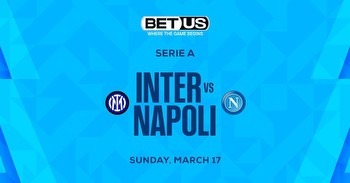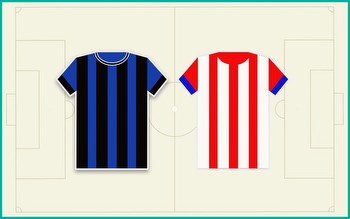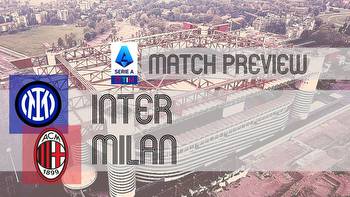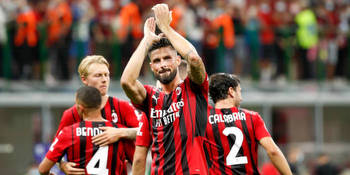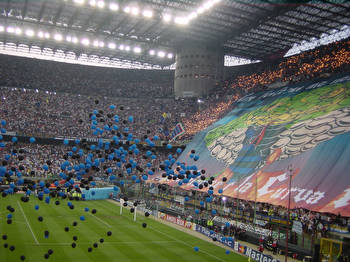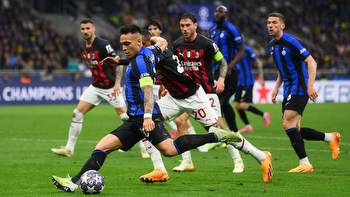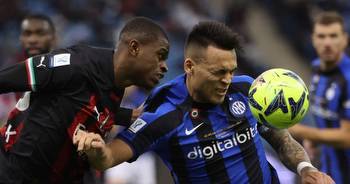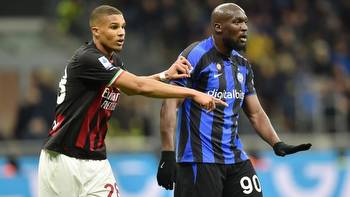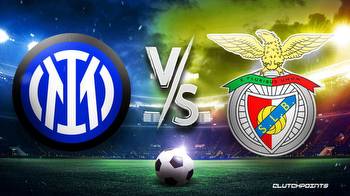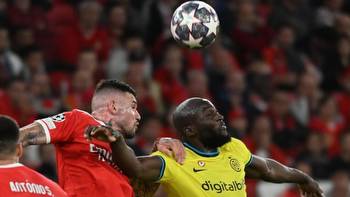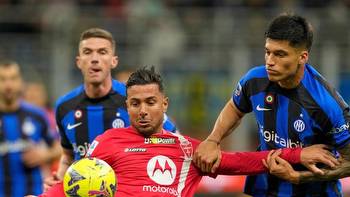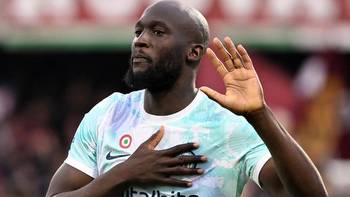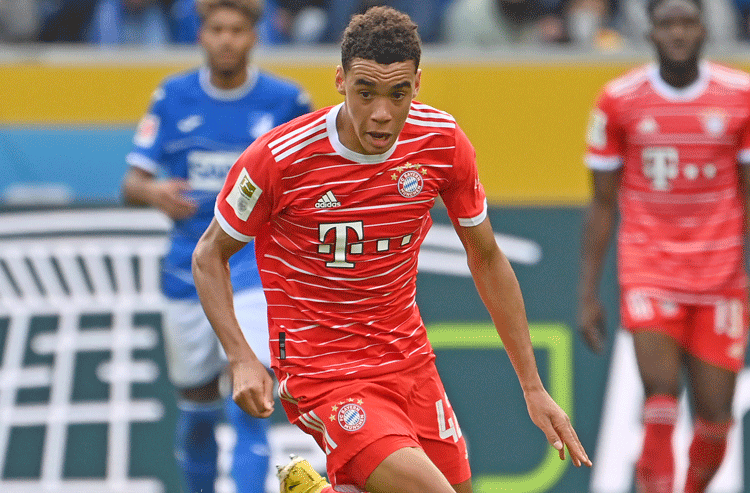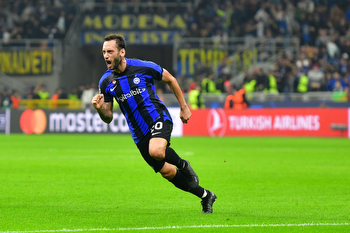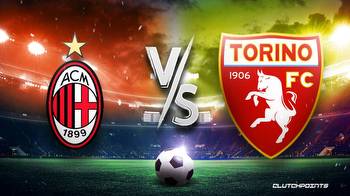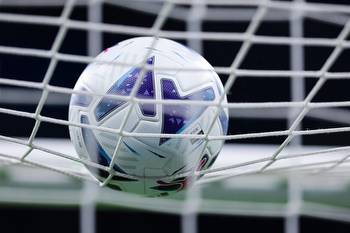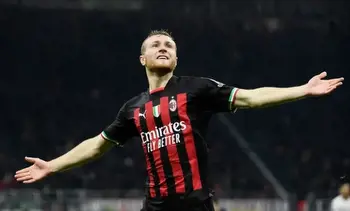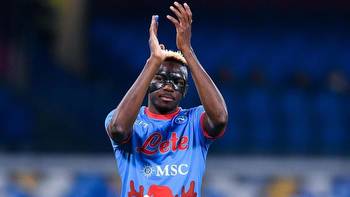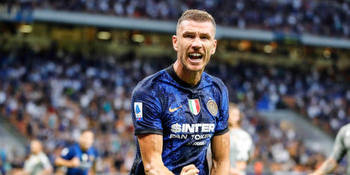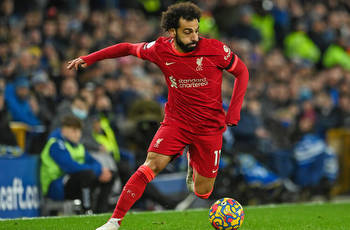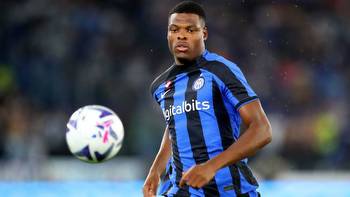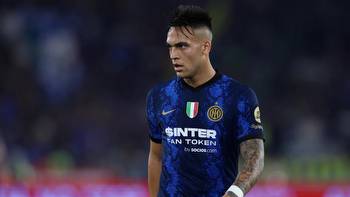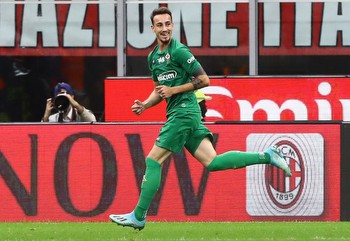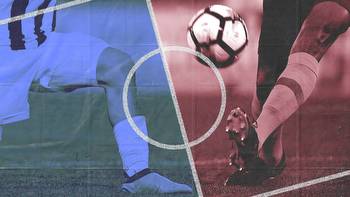Inter Milan up for sale? Intrigue over market value, player trading and San Siro
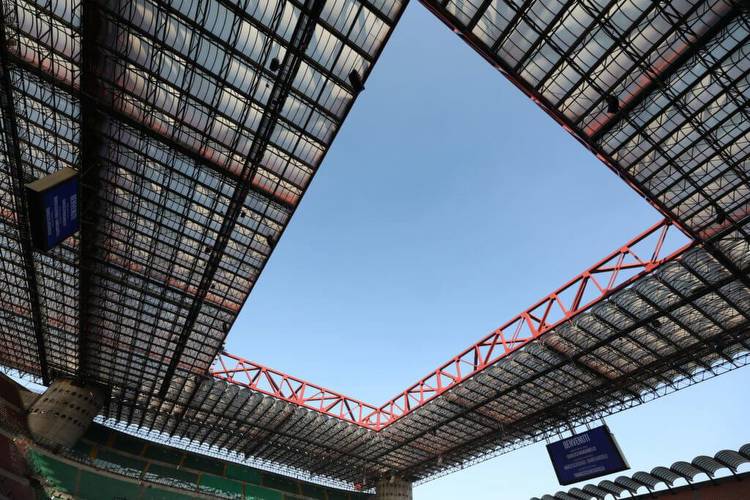
Does anyone remember Joao Mario?
Can you recall when he was ‘remember-the-name Joao Mario’? Or when the Suning Group announced its arrival at Inter Milan by paying Sporting Lisbon €44million to sign him?
The Portugal international flopped amid the flux of the takeover, the hiring and firing, and the overhaul of the squad from ‘banter Inter’ to ‘look-who-is-back-in-the-Champions-League, trophy-winning Inter’. After loans to Lokomotiv Moscow, West Ham and old club Sporting, his contract was terminated by Inter in 2021. Joao Mario became Ciao Mario, departing on a free transfer to Benfica where, under Roger Schmidt this season, statistically at least, he is one of the best midfield players in Europe.
The 30-year-old is back in the Champions League quarter-finals for a second straight year and has scored in five consecutive European games, including spot kicks against Paris Saint-Germain and, much to Inter fans’ delight, Juventus at the Allianz Stadium, where he cupped his ears to better hear the whistles. Joao Mario has scored 21 goals and registered seven assists across 31 games in the Primeira Liga and Champions League (not including qualifiers) this season — an astonishing return for a midfielder.
Depending on how tonight’s Champions League last-16 second leg in Porto goes for Inter, a reunion could be on the cards in the last eight. You would imagine there might be a wistful sense of ‘what could have been’ upon seeing the late blossoming of Joao Mario at this level, just as there has been with fellow 2017 signing Gabriel Barbosa, who has shown Inter that perhaps he was worth persisting with after lifting the Copa Libertadores twice at Flamengo.
A genuine grievance is instead felt by Sporting, who were not best pleased with Inter when the Italians terminated Joao Mario’s contract and saw him walk straight into the arms of Benfica, their Lisbon rivals.
Last summer, they made a claim for €30m (£26.5m; $32m) against Inter for failing to activate a “pre-emption clause” included in the original sale agreement “in the event of the player’s transfer to any other club participating in the Portuguese championship”. Inter do not consider the club responsible for contractual violations and “will take action in the appropriate venues to protect its interests”.
It’s a small detail that will have caught the attention of any prospective Inter buyer or investor flicking through the club’s most recent set of accounts. This brings us up to date from Suning’s first moves to the state of play and arguably the biggest question in football in 2023, one that fans of some of the world’s biggest clubs have been scratching their heads about: is my club for sale or isn’t it?
Manchester United and Liverpool fans have been grappling with this for months. In Inter’s case, chairman Steven Zhang — who is the same age as Joao Mario — has publicly said his club is not on the market. At least, that was his stance at the end of October after Inter qualified, at Barcelona’s expense, for the knockout stages of the Champions League. But Raine Group, the bank a la mode for football club takeovers since the auction for Chelsea, is running a sale process and there are a couple of prospective bidders sniffing around.
Engaging in some repartee on the Italian Football Podcast, SPAL’s owner Joe Tacopina, the New York lawyer who has Donald Trump as a client, joked: “If I challenged him (Trump) and said you could probably never win anything with Inter, he’d probably then buy Inter, so that’s maybe the move.”
In all seriousness, Inter should represent an enticing opportunity. There is a prestige and scarcity value in being part of a select group of ‘legacy’ clubs. Inter have won the Champions League as many times as Manchester United (three) and more recently, too (2010). They are the only team in Italy to have done the treble and, now COVID-19 restrictions have been lifted, the club pulls in huge crowds at San Siro, averaging more than 70,000 a game with millions of fans around the world and more than 20 million followers on social media. Brand-wise, the club’s original concept — Internazionale, brothers of the world — should transcend Italy.
Two years after the end of exclusive talks between Inter and private equity group BC Partners, valuations of football clubs have only climbed further, with the admittedly unique circumstance around the £2.3billion sale of Chelsea establishing a new benchmark. In Italy, the watermark has instead been set by Inter’s ‘cousins’, AC Milan, who went for €1.2billion last summer. RedBird Capital needed a vendor loan from the hedge fund Elliott to complete the acquisition, which, in terms of a fee, was at the top of the market — a price that would be difficult to achieve nine months later.
The world economy has changed. Inflationary pressures are greater, interest rates are higher, money is more expensive. Within a Serie A context, it makes matching Milan’s sale a challenge. KPMG’s latest report gives Inter an enterprise value range between €952million and €1.04billion.
Forbes considers the club worth €942m — on the face of it, not bad for Suning considering it paid €270m for the club in 2016.
But that isn’t how it works. As chief executive Giuseppe Marotta keeps saying in justification of the club’s new path towards sustainability, Inter’s owners have invested more than €700m, a number he presumably gets to by adding together the purchase price and €549m in shareholder funding. The club is the most indebted in Italy, which is important because this gets priced into any prospective sale. Take, for example, the €415m bond Inter refinanced until 2027 this time last year. The interest on it leapt from 4.875 per cent back when money was cheap to 6.75 per cent, which is still a better rate than if they needed to go to the market now.
The bond forms part of Inter’s total liabilities, which amount to €871m in the club’s latest set of books.
It begs the question of how the incumbent owner can hope to exit with a return, especially when Grand Tower, the Luxembourg-based holding company through which Suning controls Inter, took out a €275m loan from Oaktree Capital Management to help plug the funding gap during COVID-19. The loan has a 12 per cent interest rate and is due on May 20, 2024. Fail to repay it and Oaktree gets the keys to the club.
The arrangement acts as a backstop for Inter and, were that to happen, it would echo Elliott’s repossession of Milan after Li Yonghong defaulted on his debt to the fund in 2017. Judging by Zhang’s remarks at Inter’s annual shareholders’ meeting in October — “The commitment for us is long-term; the future is crystal clear since we have taken over the club” — he does not foresee that happening even though Suning itself was rescued in a bailout by the local government and Alibaba in 2021 and Inter’s parent company, last summer, received a writ of summons from China Construction Bank after Zhang lost a court case in Hong Kong making him liable for $255m of debt.
Unsurprisingly, Suning’s investment in Inter — The Athletic explained the situation in greater depth here — has dwindled since the pandemic.
Inter booked record revenues in 2022 of €440m, but still made a €140m loss despite selling Achraf Hakimi to PSG and Romelu Lukaku to Chelsea as well as reaching the knockout stages of the Champions League. The squad is the oldest in Serie A — Friday’s starting XI against Spezia had an average age of nearly 31 — and, having already lost scudetto winner Ivan Perisic to Tottenham Hotspur and Milan Skriniar (to PSG this coming summer) for nothing, Inter have eight other players, including captain Samir Handanovic, Stefan de Vrij, Danilo D’Ambrosio and Edin Dzeko, out of contract this summer.
Alessandro Bastoni, Henrikh Mkhitaryan and Hakan Calhanoglu’s deals are up in 2024. Then there are the loans to consider. Lukaku is expected to return to Chelsea and the €20million he cost as a one-year rental has hardly been worth it, with him only scoring one league goal from open play this season so far. Decisions will also have to be taken on the options to sign Francesco Acerbi and Raoul Bellanova.
Inter’s sporting director Piero Ausilio hopes to announce more renewals, such as Calhanoglu’s, to follow those of Lautaro Martinez, Marcelo Brozovic and Nicolo Barella. But there are so many players’ futures up in the air that it seems the squad will need considerable investment in the summer either by Suning or a new owner, who will presumably look to bake that transfer spend into the price.
Complicating matters further is the strict financial fair play settlement agreement imposed by UEFA, so money will likely have to be raised by player trading. How, though, do you do that amid all the expiring contracts? World Cup-winning striker Martinez is Inter’s most valuable player, and Denzel Dumfries, who has often been linked with the Premier League, has started seven of Inter’s last 11 league games on the bench, which will hardly help generate interest or value in him.
There is always TV money to fall back on (although it remains to be seen if the next domestic and international Serie A rights tender bounces back after shrinking by 12 per cent last time around). Then there is commercial and sponsorship revenue. Even in that case, Inter are looking for a new front-of-shirt sponsor after DigitalBits, the cryptocurrency firm that committed to pay the club €80m over three years, missed a €24m payment as well as additional performance bonuses.
That follows Inter writing off money they couldn’t collect from Chinese sponsors. While unfortunate and embarrassing — Inter continue to carry the DigitalBits branding on the team’s jerseys — they will no doubt be replaced soon as, one imagines, will the naming rights of the training ground in Appiano Gentile, which lapsed when Suning’s deal came up last summer.
As with 90 per cent of clubs in Italy, a new stadium would be a game-changer. The Athletic went into why this issue has held Serie A back in great depth here. Almost four years ago, the two Milan clubs announced plans to partially demolish San Siro, erect a new state-of-the-art ground called The Cathedral and regenerate the area around it.
The pandemic, elections at city hall and red tape have held it up. Mayor Beppe Sala elicited a furious reaction from Inter, too, when he suggested in 2021 that “until Inter in particular clarifies its destiny”, the project would be on standby. Inter found his comments “offensive” and “disrespectful”. Once the city came out of COVID-19 and Sala won re-election, things did start to move again.
But frustration at snail-like progress, the ease with which politicians weaponise the sentimentality around San Siro for their own gain and the change of owner at Milan has caused a break. Rather than share a stadium and the burden of building it with Inter, Milan are strong enough to go it alone and have been looking at Sesto San Giovanni and, more recently, La Maura, the old horse-racing track, about a kilometre away from San Siro.
Live entertainment has always been a forte of Milan’s new owner, Gerry Cardinale, who helped bring the Cowboys Stadium project to life in Dallas and the renovation of Yankee Stadium in New York. If his executive team can cut through the bureaucracy, Milan expect to be able to offer the best stadium experience in mainland Europe and monetise it to help close the gap with the Champions League elite and leave their Serie A rivals for dust.
Inter claim not to have been caught high and dry by Milan’s sudden pivot away from The Cathedral, but CEO Alessandro Antonello did concede “what surprised us is we were working on a project together”.
He added: “We have a plan B that protects the interests of the club and fans.” Exactly what plan B looks like has been uncertain, especially as the idea of retrofitting the existing structure of San Siro had been ruled out in the process that led to The Cathedral because it represents too much cost for not enough benefit.
“Milan are looking at La Maura but I’m yet to understand where Inter are looking,” mayor Sala said.
La Gazzetta dello Sport believes it is a site in Assago, at the end of the Milan metro’s green line. How Inter’s existing owners fund a new stadium remains to be seen. Yet the plans to build one, were they deemed realistic, would give the club more appeal to a buyer. Without a Super League on the horizon, this is where a large chunk of the growth lies for the Milanesi.
For now, the only dot that’s approaching fast is a huge week in Inter’s campaign.
Friday’s defeat to Spezia has cast doubt on Simone Inzaghi’s future beyond this season. Inter’s dreadful away record — only Salernitana and Cremonese have conceded more goals on the road — and their habit of slipping up against teams in the bottom half has undermined Inzaghi, even though the team is second in Serie A, through to the Coppa Italia semi-finals and can reach the quarters of the Champions League for the first time since Leonardo got one last tune out of the treble winners in 2011. After Porto, the perennial Serie A slayers in the Champions League, Juventus are up next in the Derby d’Italia.
Joao Mario has beaten both this season. Remember him?

